GALLERY 05 | WATER & EQUITY
EXHIBIT 01/02 02
A Tale for the Years: Water, Rights and Equity
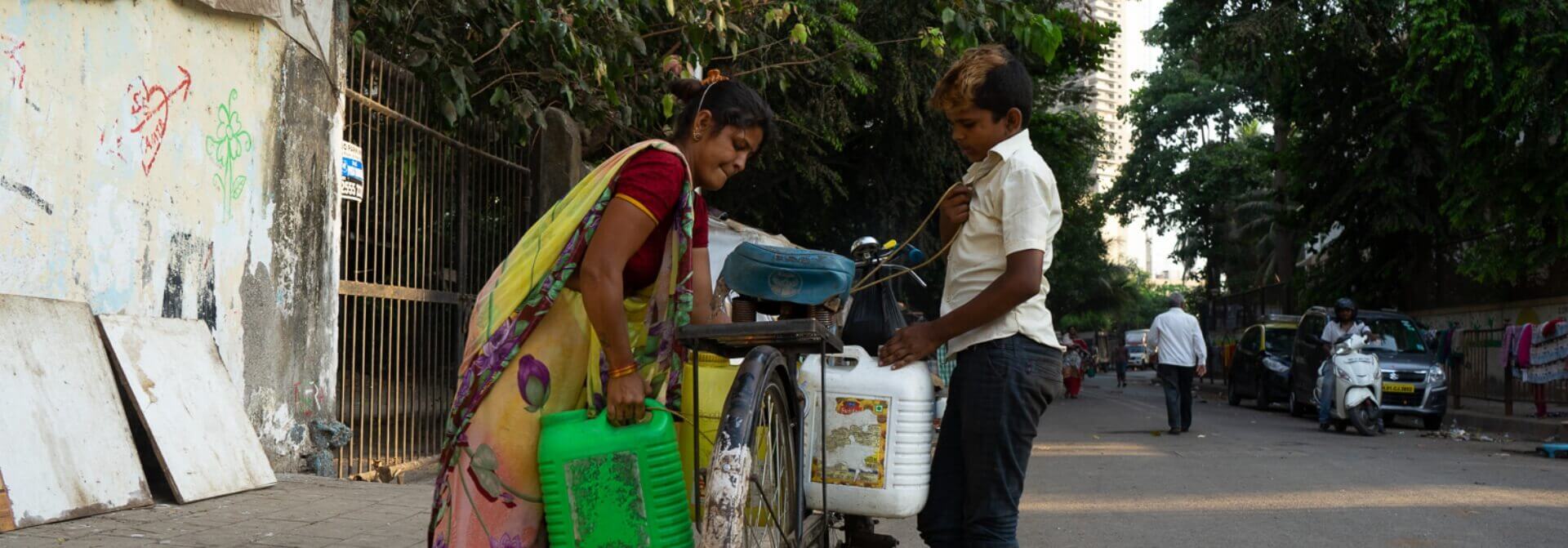
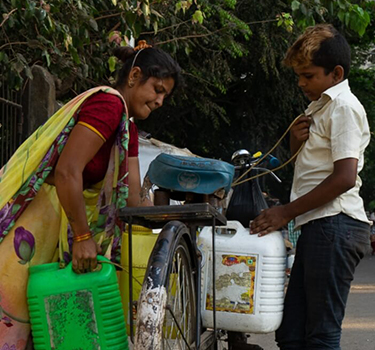


In a city where money talks, this essay attempts to invoke interest from Mumbaikars by
drawing upon who pays the most for water.
In a city where money talks, this essay attempts to invoke interest from Mumbaikars by
drawing upon who pays the most for water.

The Municipal Corporation of Greater Mumbai (MCGM), maintains one of the most extensive and complex water distribution systems in the world which includes nearly 20,000 kilometres of pipelines (advertised by MCGM). Yet, to the everyday Mumbaikar, it is a mystery where the water in their taps is sourced from or how much they actually consume.
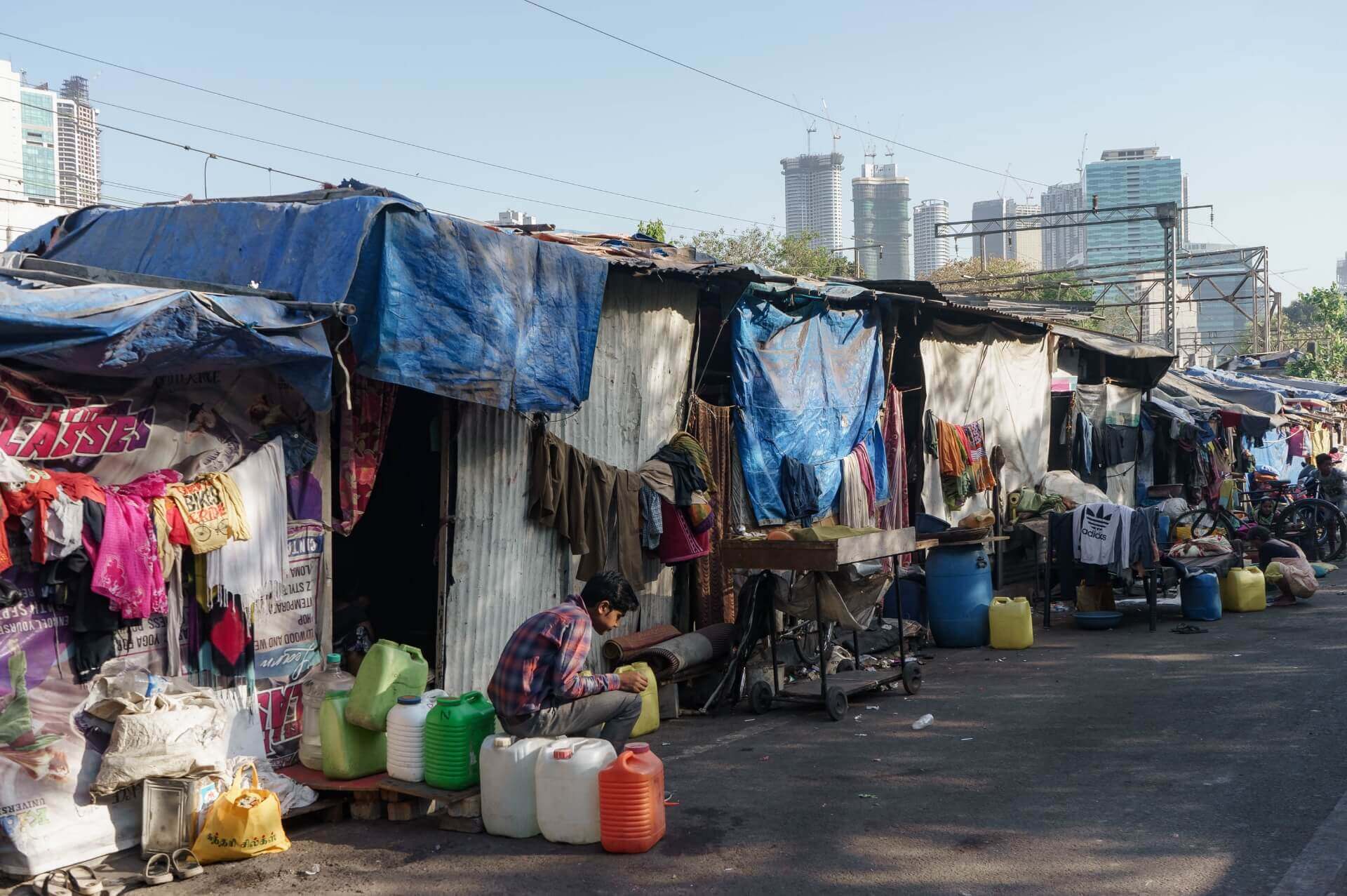
The water supply infrastructure was built in 1860 Colonial Bombay and promised to be designed around urban modernity and liberalism. Nikhil Anand, author of Hydraulic City aptly describes the prevalent discrimination, that to this day exists in water governance - between those deserving of being citizens and those informally settled in the metropolis. (Anand, 2017, p14).
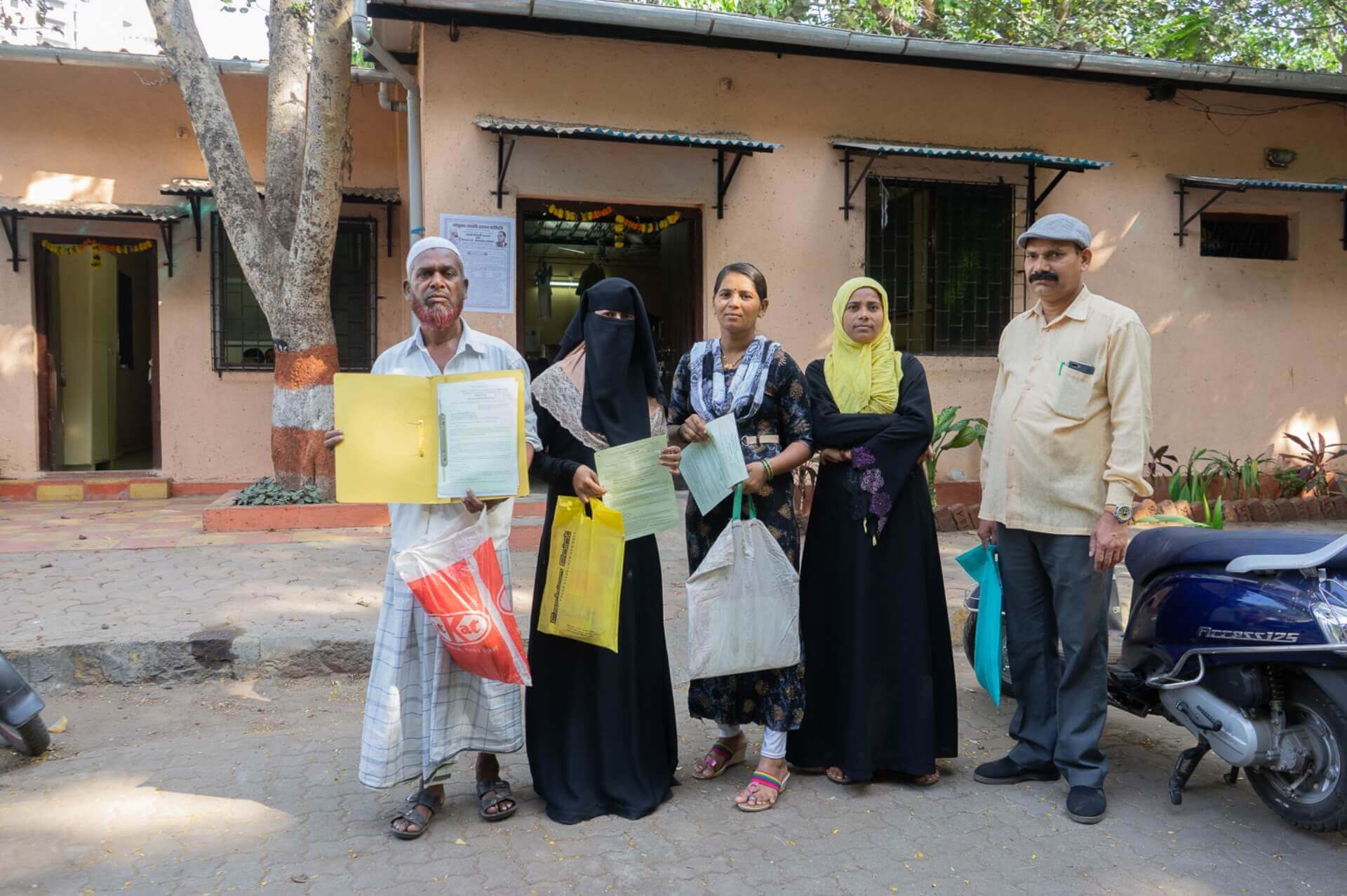
Pictured here, residents from GTB Nagar outside the local Ward office holding the paperwork they have jointly filed seven months ago for a new water connection. The list of paperwork demanded by the MCGM is exhaustive and requires five households to jointly apply in a single application. View the application form.
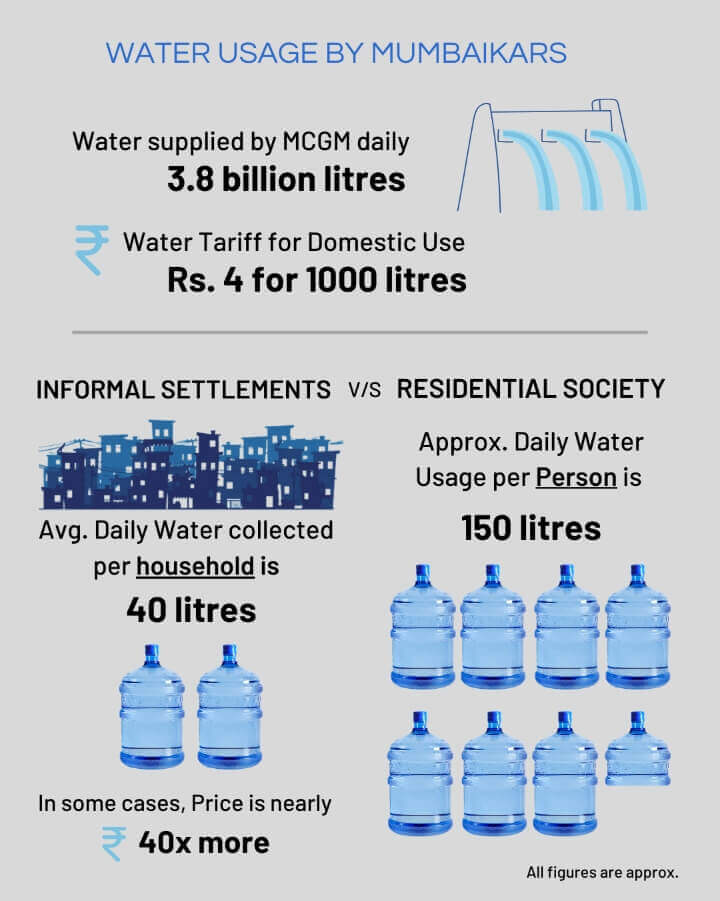
The right to water in the slums of Mumbai, India. Ramnath Subbaraman
& Sharmila L Murthy. Bulletin of the World Health Organization
An individual living in an informal settlement can receive less than 20 litres daily (below the minimum consumption level recommended by WHO) and ends up paying nearly 40 times more.

Rich or poor, residents in Mumbai share their water connection with their neighbours and an individual ends up paying the same even if their neighbour consumes twice as more water. With many meters not working, the system heavily relies on estimates.

The right to water in the slums of Mumbai, India. Ramnath Subbaraman & Sharmila L Murthy. Bulletin of the World Health Organization
In many informal settlements, 95% of all existing households use less than 50 litres per capita per day. This means a higher chance of contracting and spreading diseases.

The measure, as per the 2014 High Court Order to supply to provide piped water to those who can prove residence in informal settlements before 2000, is largely unmet.
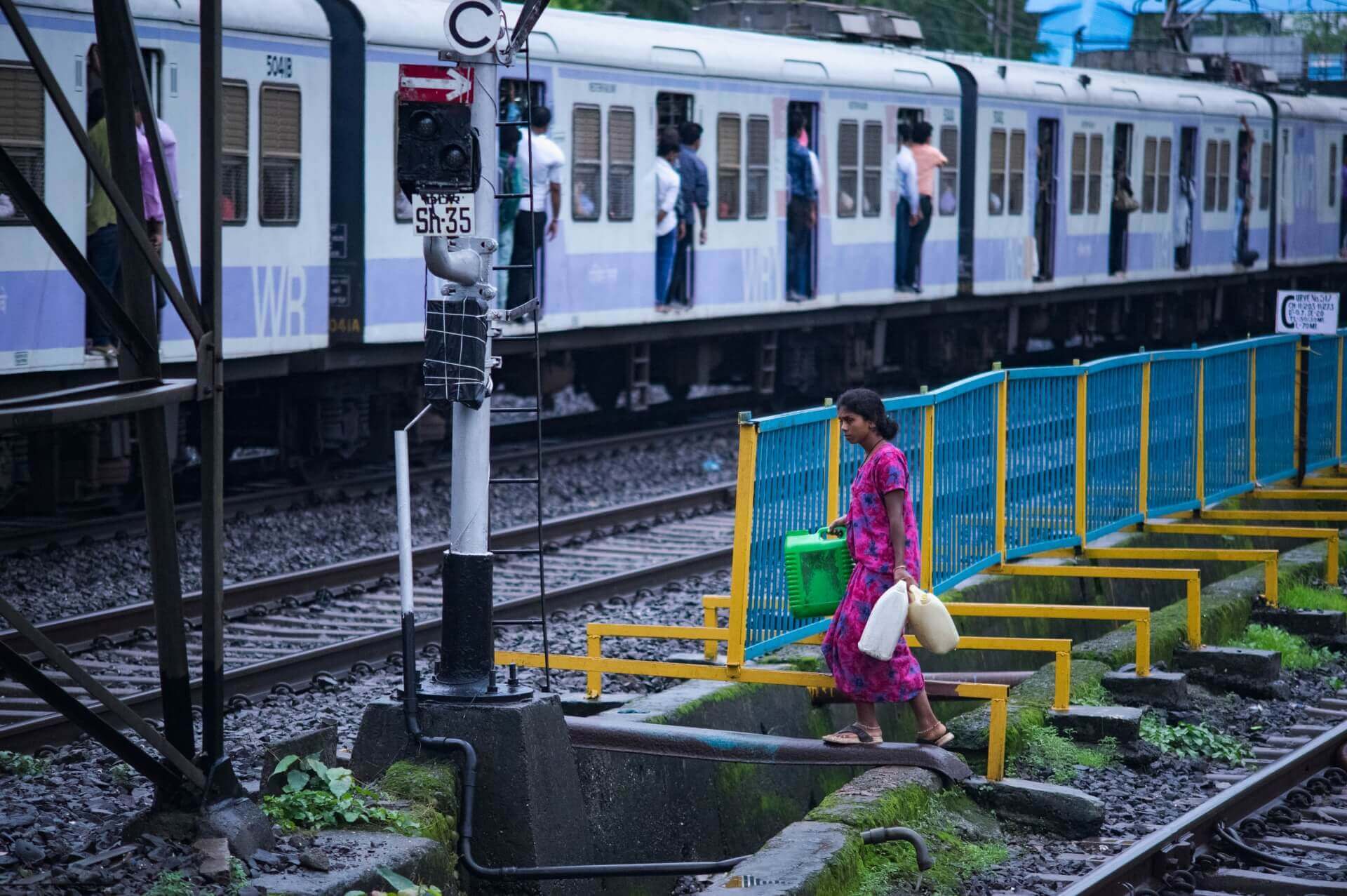
If one compares access to water between formal and informal settlements, the only conclusion to arrive at would be to describe state policies as inhumane and designed to discriminate.

Typically it’s the women from low-income households that carry the burden of water collection, management and storage.
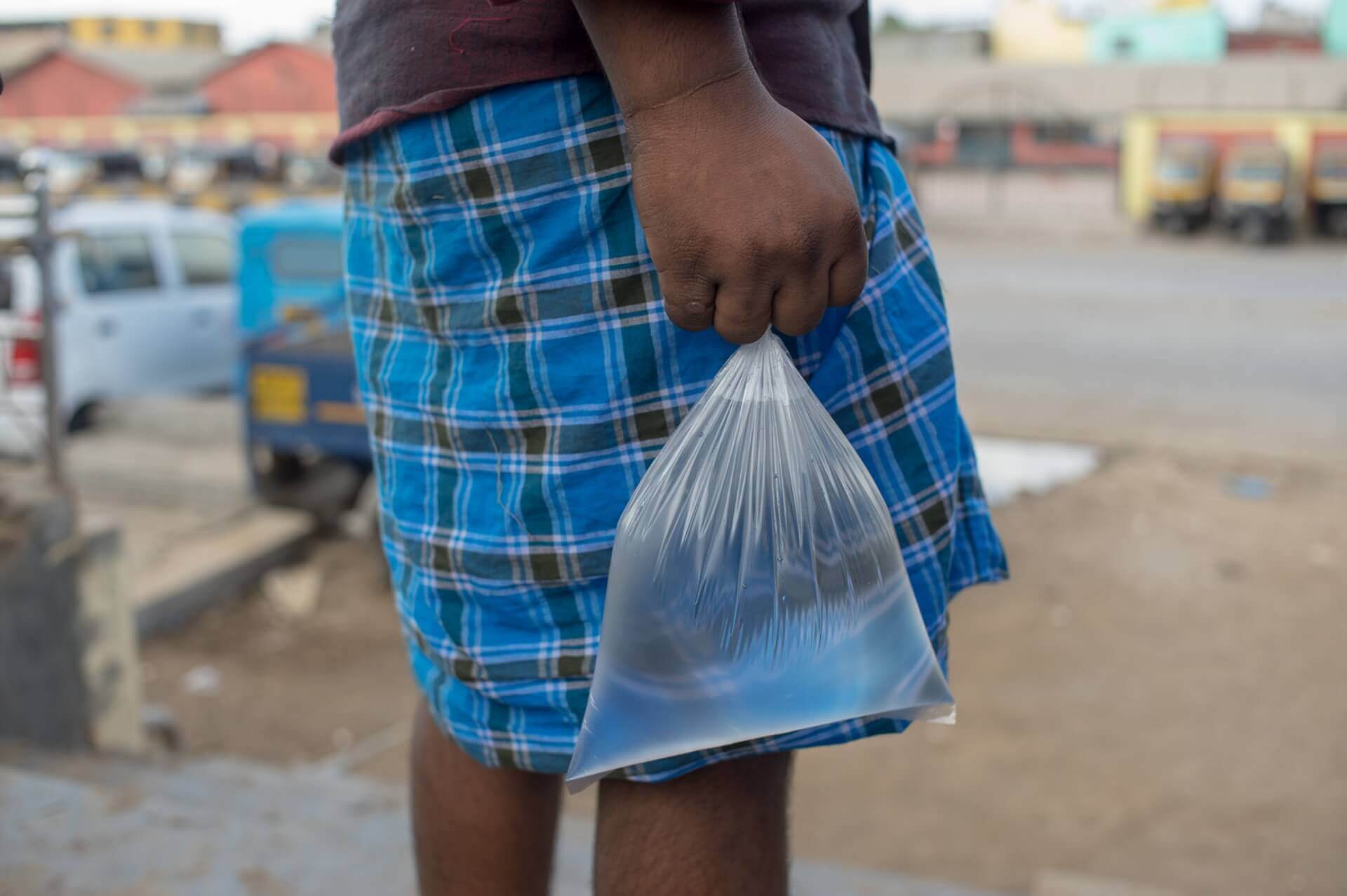
Water in plastic pouches (sold at Rs.2-3) like these are commonly sought after in many informal settlements. They are generally kept refrigerated by shopkeepers or purchased for the convenience factor to fulfil morning duties.

Children too have to share this burden. Akash (in picture) who has quit schooling, spends close to an hour each day refilling the water tumbler from an unknown leak flowing into the Eksar Nullah in Borivali.
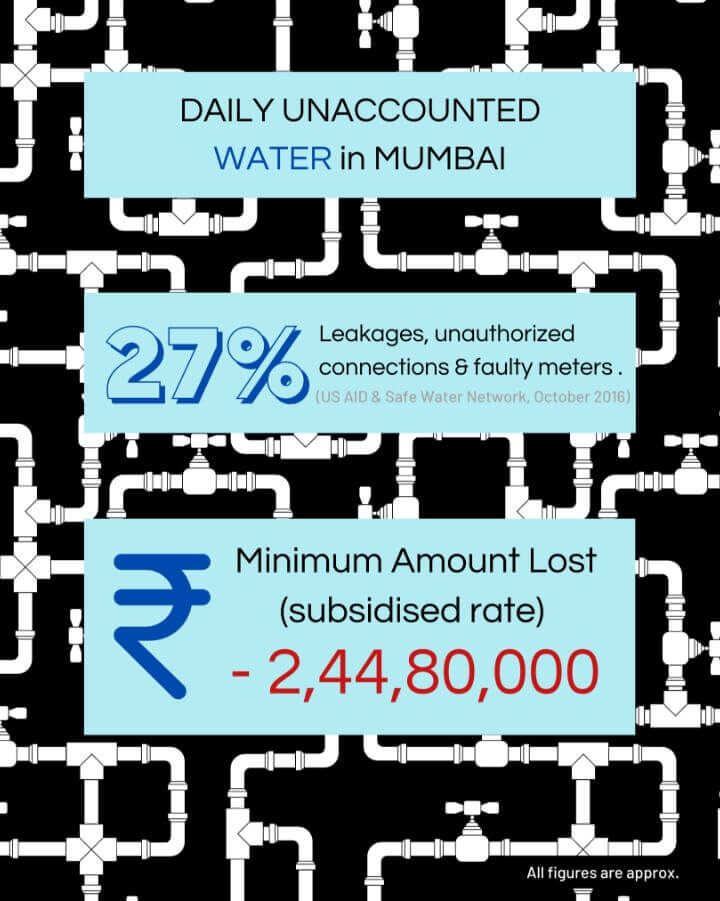
Speak to any expert in the water sector and it becomes clear that the challenges lie in
the management of water and not it’s availability.
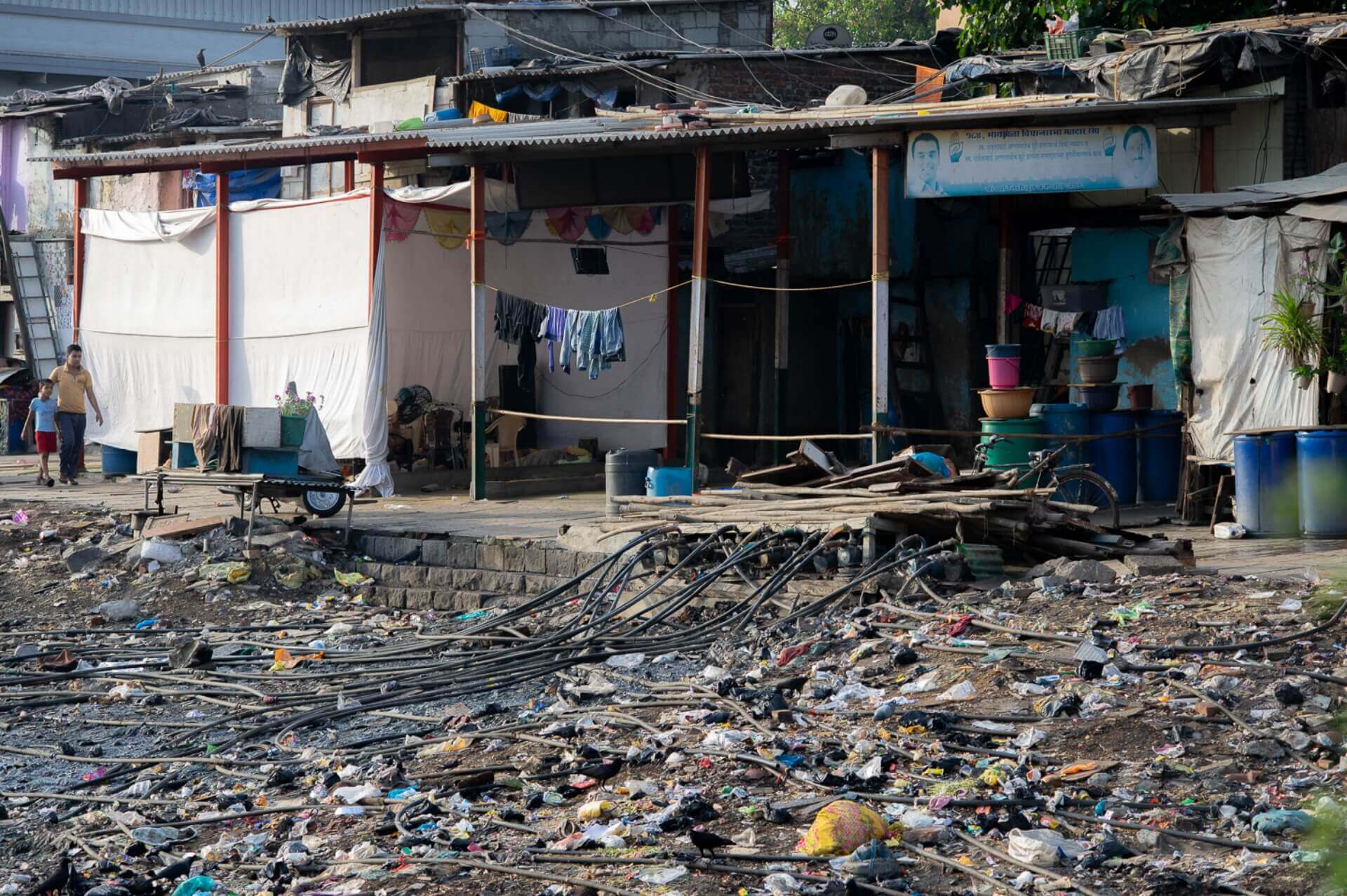
The poor have to resort to informal sources, tankers and the black market. Seen here are floating pipes set up in co-operated effort by local plumbers and authorities in a low-income settlement in south Mumbai.

With unlimited water in every room at home, can well-off citizens claim to truly understand how those who are water insecure live?
Anand, N., 2017. Hydraulic City. 1st ed. United States: Duke University Press.
US AID & Safe Water Network, 2016, Drinking Water Supply of Urban Poor: City of Mumbai., Mumbai.
Rain illnesses take a toll on Mumbai hospitals dnaindia.com
dnaindia.com
RTI Manual 17 AEWW A Ward.pdf (mcgm.gov.in)
(mcgm.gov.in)
Civic body mulls meters in each flat to reduce wastage of water | Hindustan Times
Controversy over water tariffs in Mumbai  (downtoearth.org.in)
(downtoearth.org.in)
Mumbai civic body’s water plan: Pay more if you exceed usage cap | Hindustan Times
Water Handbook (somaiya.edu)
(somaiya.edu)
Mumbai loses 25% water to leakage, theft | Mumbai News - Times of India (indiatimes.com)
(indiatimes.com)
The Bombay Community Public Trust,Understanding our Civic Issues. Mumbai's Water Supply (bcpt.org.in)
(bcpt.org.in)
WATER SUPPLY PROJECTS AND WATER DISTRIBUTION SYSTEM OPERATION & MAINTENANCE, K. J. Somaiya College of Science & Commerce and Mumbai Metropolitan Region Environment Improvement Society, CDEM, 2016
www.thewaterstory.com.au. 2019. SECURING SUPPLY. [ONLINE] Available at: https://thewaterstory.com.au/2019/10/31/securing-supply/. [Accessed 22 January 2021].